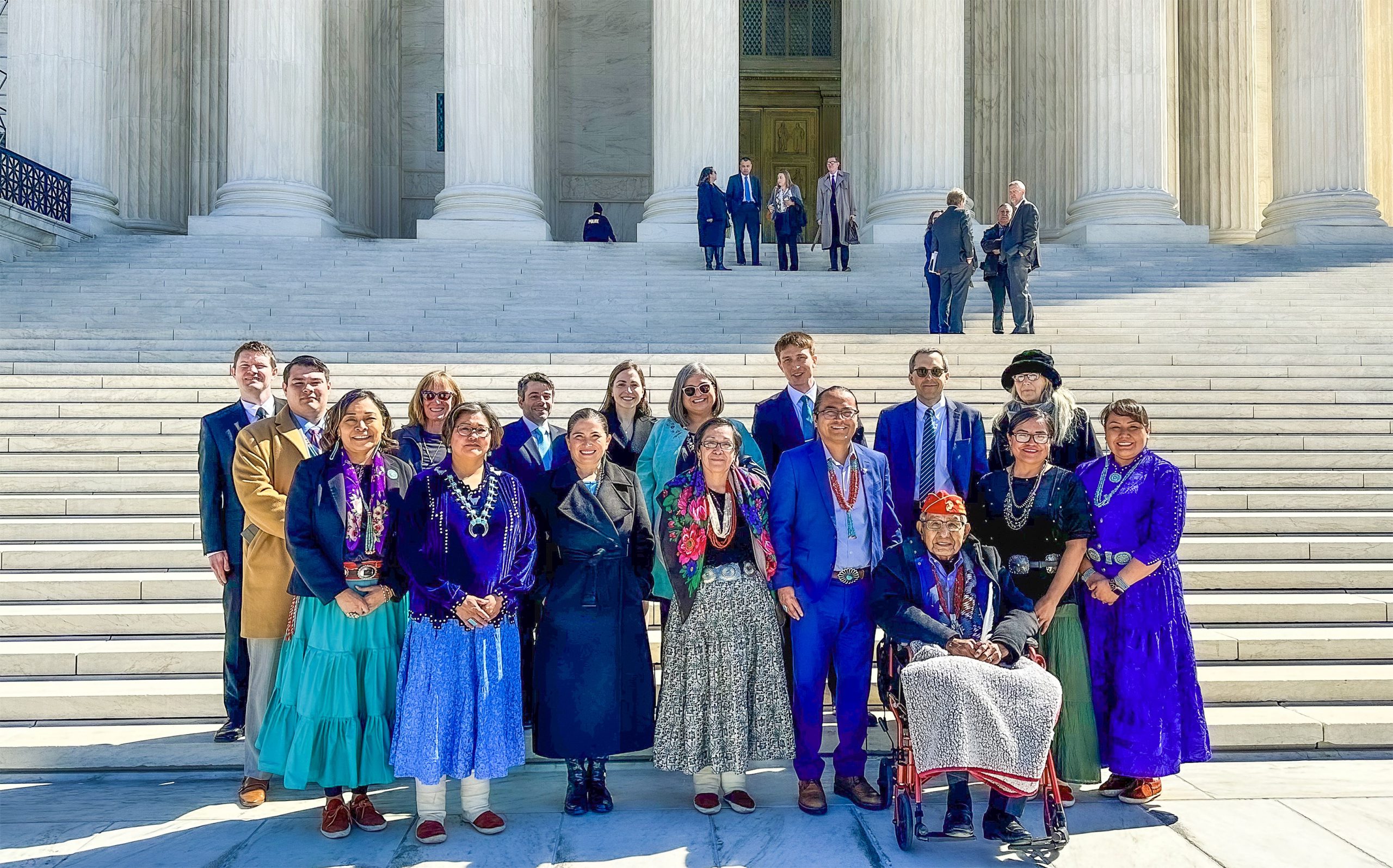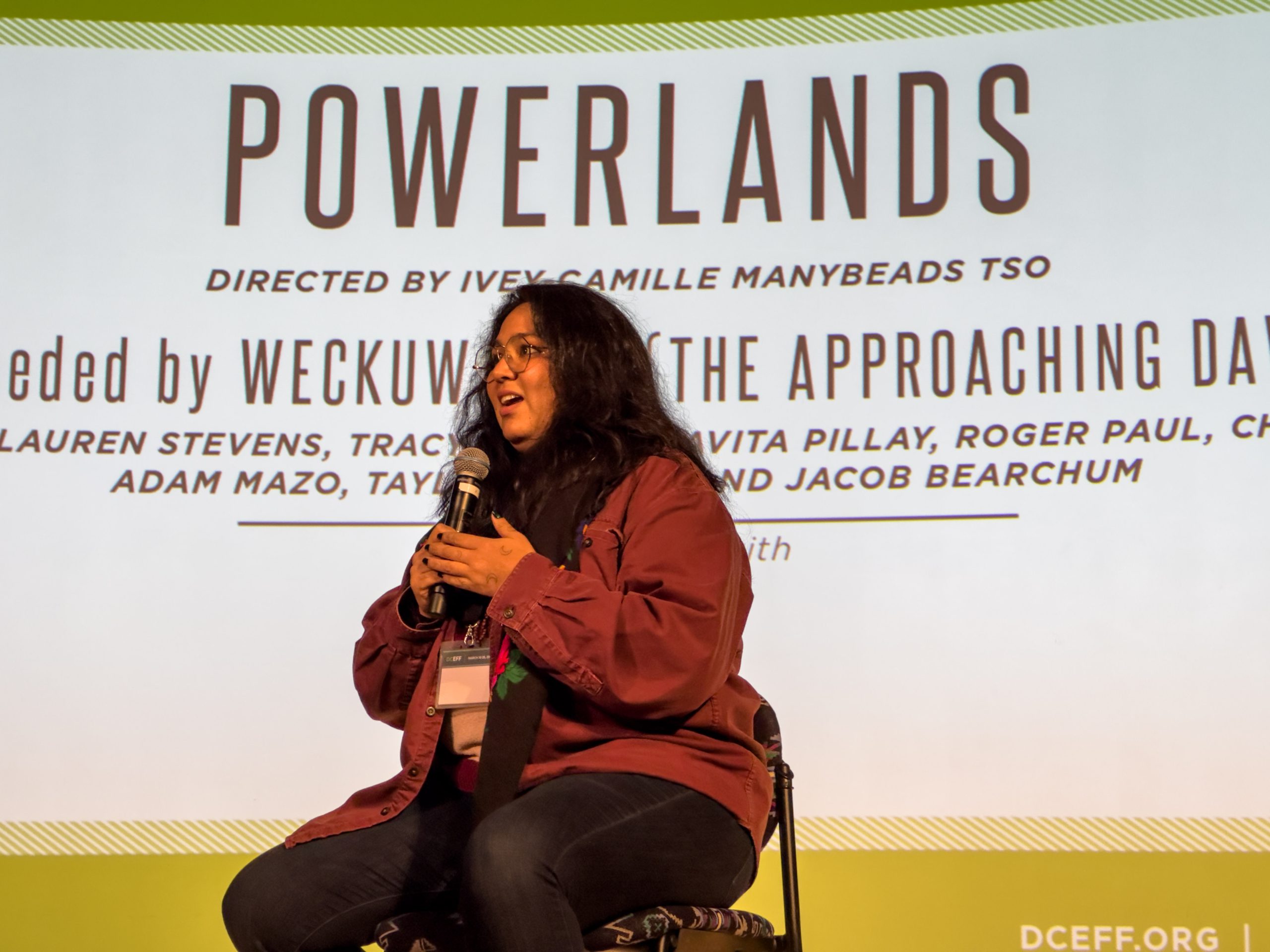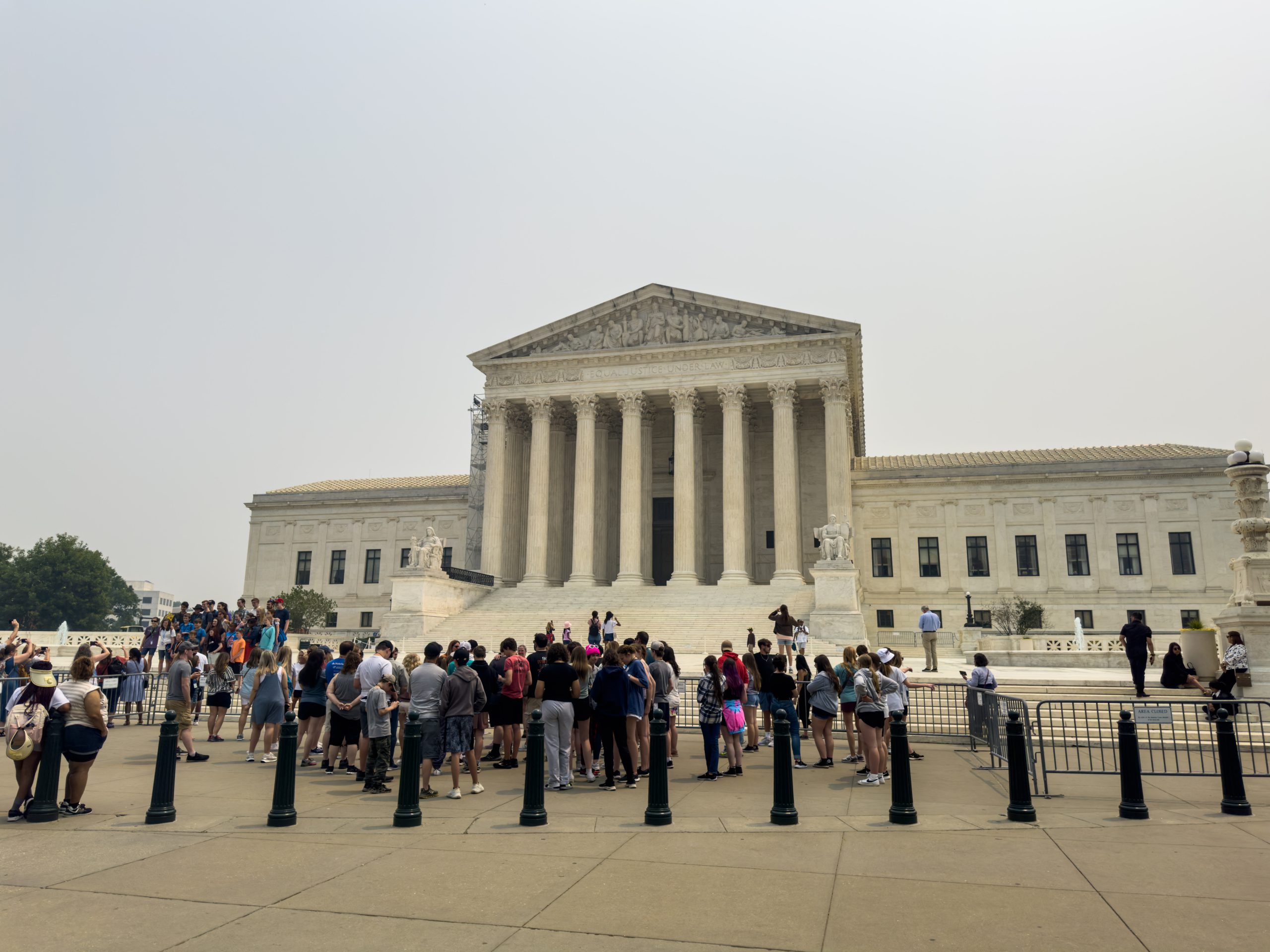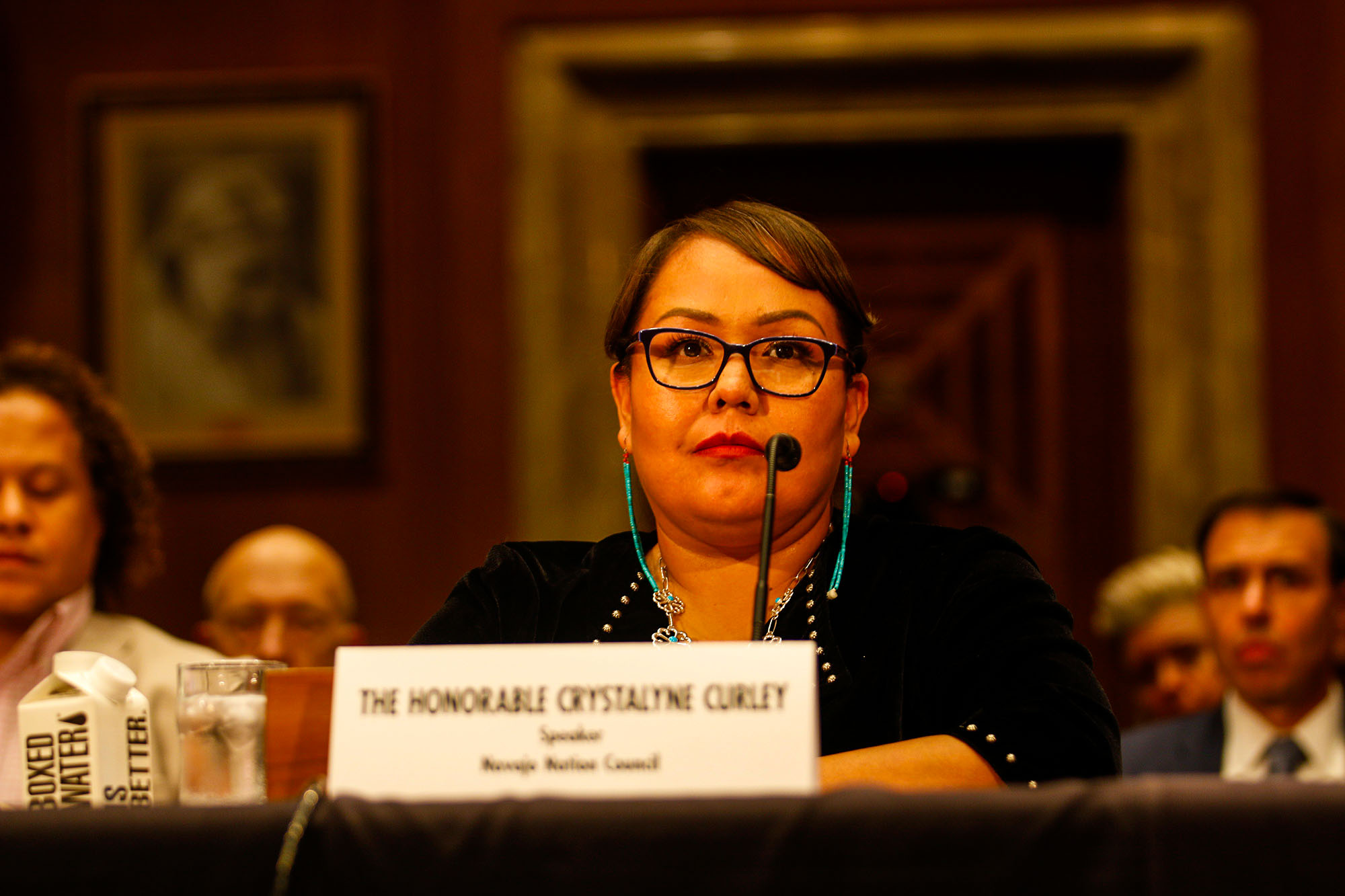Indianz.Com > News > ProPublica: History repeats itself with state opposition to tribal water rights

Western States Opposed Tribes’ Access to the Colorado River 70 Years Ago. History Is Repeating Itself.
Records unearthed by a University of Virginia professor shed new light on states’ vocal opposition in the 1950s to tribes claiming their share of the river. Today, many are still fighting to secure water.
Tuesday, October 17, 2023
This story was originally published by ProPublica and co-published with High Country News.
ProPublica is a Pulitzer Prize-winning investigative newsroom. Sign up for The Big Story newsletter to receive stories like this one in your inbox.
Series — Waiting for Water: Tribes’ Fight for a Promised Resource
The U.S. Supreme Court ruled in 1908 that tribes with reservations have a right to water. But ProPublica and High Country News found that in the drought-stricken Colorado River Basin they face unique obstacles: a state that aggressively opposes them, a process that sometimes doesn’t provide infrastructure to access water and growing competition from other users.Three Missing Words
As Arizona prepared to take California to court in the early 1950s, the federal government faced a delicate choice. It represented a host of interests along the river that would be affected by the outcome: tribes, dams and reservoirs and national parks. How should it balance their needs?The Supreme Court had ruled in 1908 that tribes with reservations had an inherent right to water, but neither Congress nor the courts had defined it. The 1922 Colorado River Compact, which first allocated the river’s water, also didn’t settle tribal claims.In the decades that followed the signing of the compact, the federal government constructed massive projects — including the Hoover, Parker and Imperial dams — to harness the river. Federal policy at the time was generally hostile to tribes, as Congress passed laws eroding the United States’ treaty-based obligations. Over a 15-year period, the country dissolved its relationships with more than 100 tribes, stripping them of land and diminishing their political power. “It was a very threatening time for tribes,” Curley said of what would be known as the Termination Era.So it was a shock to states when, in November 1953, Attorney General Herbert Brownell Jr. and the Department of Justice moved to intervene in the states’ water fight and aggressively staked a claim on behalf of tribes. Tribal water rights were “prior and superior” to all other water users in the basin, even states, the federal government argued.Western states were apoplectic.Arizona Gov. John Howard Pyle quickly called a meeting with Brownell to complain, and Western politicians hurried to Washington, D.C. Under political pressure, the Department of Justice removed the document four days after filing it. When Pyle wrote to thank the attorney general, he requested that federal solicitors work with the state on an amended version. “To have left it as it was would have been calamitous,” Pyle said.The federal government refiled its petition a month later. It no longer asserted that tribes’ water rights were “prior and superior.”
Western States Battle Tribal Water Claims
As arguments in the case continued through the 1950s, an Arizona water agency moved to block a major farming project on the Colorado River Indian Tribes’ reservation until the case was resolved, the newly uncovered documents show. Decades later, the state similarly used unresolved water rights as a bargaining chip, asking tribes to agree not to pursue the main method of expanding their reservations in exchange for settling their water claims.Highlighting the state’s prevailing sentiment toward tribes back then, a lawyer named J.A. Riggins Jr. addressed the river’s policymakers in 1956 at the Colorado River Water Users Association’s annual conference. He represented the Salt River Project — a nontribal public utility that manages water and electricity for much of Phoenix and nearby farming communities — and issued a warning in a speech titled, “The Indian threat to our water rights.”“I urge that each of you evaluate your ‘Indian Problem’ (you all have at least one), and start NOW to protect your areas,” Riggins said, according to the text of his remarks that he mailed to the Bureau of Indian Affairs.Riggins, who on multiple occasions warned of “‘Indian raids’ on western non-Indian water rights,” later lobbied Congress on Arizona’s behalf to authorize a canal to transport Colorado River water to Phoenix and Tucson. He also litigated Salt River Project cases as co-counsel with Jon Kyl, who later served as a U.S. senator. (Kyl, who was an architect of Arizona’s tribal water rights strategy, told ProPublica and High Country News that he wasn’t aware of Riggins’ speech and that his work on tribal water rights was “based on my responsibility to represent all of the people of Arizona to the best of my ability, which, of course, frequently required balancing competing interests.”)While Arizona led the opposition to tribes’ water claims, other states supported its stance.“We thought the allegation of prior and superior rights for Indians was erroneous,” said Northcutt Ely, California’s lead lawyer in the proceedings, according to court transcripts. If the attorney general tried to argue that in court, “we were going to meet him head on,” Ely said.When Arizona drafted a legal agreement to exclude tribes from the case, while promising to protect their undefined rights, other states and the Department of the Interior signed on. It was only rejected in response to pressure from tribes’ attorneys and the Department of Justice.McMillen, the historian who compiled the documents reviewed by ProPublica and High Country News, said they show Department of Justice staff went the furthest to protect tribal water rights. The agency built novel legal theories, pushed for more funding to hire respected experts and did extensive research. Still, McMillen said, the department found itself “flying the plane and building it at the same time.”Tribal leaders feared this would result in the federal government arguing a weak case on their behalf. The formation of the Indian Claims Commission — which heard complaints brought by tribes against the government, typically on land dispossession — also meant the federal government had a potential conflict of interest in representing tribes. Basin tribes coordinated a response and asked the court to appoint a special counsel to represent them, but the request was denied.So too was the Navajo Nation’s later request that it be allowed to represent itself in the case.
Arizona v. Navajo Nation
More than 60 years after Littell made his plea to Kennedy, the Navajo Nation’s water rights in Arizona still haven’t been determined, as he predicted.The decision to exclude the Navajo Nation from Arizona v. California influenced this summer’s Supreme Court ruling in Arizona v. Navajo Nation, in which the tribe asked the federal government to identify its water rights in Arizona. Despite the U.S. insisting it could adequately represent the Navajo Nation’s water claims in the earlier case, federal attorneys this year argued the U.S. has no enforceable responsibility to protect the tribe’s claims. It was a “complete 180 on the U.S.’ part,” said Michelle Brown-Yazzie, assistant attorney general for the Navajo Nation Department of Justice’s Water Rights Unit and an enrolled member of the tribe.In both cases, the federal government chose to “abdicate or to otherwise downplay their trust responsibility,” said Joe M. Tenorio, a senior staff attorney at the Native American Rights Fund and a member of the Santo Domingo Pueblo. “The United States took steps to deny tribal intervention in Arizona v. California and doubled down their effort in Arizona vs. Navajo Nation.”In June, a majority of Supreme Court justices accepted the federal government’s argument that Congress, not the courts, should resolve the Navajo Nation’s lingering water rights. In his dissenting opinion, Gorsuch wrote, “The government’s constant refrain is that the Navajo can have all they ask for; they just need to go somewhere else and do something else first.” At this point, he added, “the Navajo have tried it all.”As a result, a third of homes on the Navajo Nation still don’t have access to clean water, which has led to costly water hauling and, according to the Navajo Nation, has increased tribal members’ risk of infection during the COVID-19 pandemic.Eight tribal nations have yet to reach any agreement over how much water they’re owed in Arizona. The state’s new Democratic governor has pledged to address unresolved tribal water rights, and the Navajo Nation and state are restarting negotiations this month. But tribes and their representatives wonder if the state will bring a new approach.“It’s not clear to me Arizona’s changed a whole lot since the 1950s,” Weiner, the lawyer, said.
Search
Filed Under
Tags
More Headlines
List of Indian Country leases marked for termination by DOGE
‘Let’s get ’em all done’: Senate committee moves quickly on Indian Country legislation
AUDIO: Senate Committee on Indian Affairs Business Meeting to consider several bills
VIDEO: Senate Committee on Indian Affairs Business Meeting to consider several bills
Native America Calling: The ongoing push for MMIP action and awareness
‘Blindsided’: Indian Country takes another hit in government efficiency push
Native America Calling: A new wave of resistance against Trans Native relatives
Urban Indian health leaders attend President Trump’s first address to Congress
‘Mr. Secretary, Why are you silent?’: Interior Department cuts impact Indian Country
Cronkite News: Two Spirit Powwow brings community together for celebration
Native America Calling: Native shows and Native content to watch
VIDEO: Oversight Hearing to Examine Native Communities’ Priorities for the 119th Congress
AUDIO: Oversight Hearing to Examine Native Communities’ Priorities for the 119th Congress
AUDIO: Leaving Indian Children Behind: Reviewing the State of BIE Schools
Cronkite News: Native student program shuts down due to President Trump
More Headlines
‘Let’s get ’em all done’: Senate committee moves quickly on Indian Country legislation
AUDIO: Senate Committee on Indian Affairs Business Meeting to consider several bills
VIDEO: Senate Committee on Indian Affairs Business Meeting to consider several bills
Native America Calling: The ongoing push for MMIP action and awareness
‘Blindsided’: Indian Country takes another hit in government efficiency push
Native America Calling: A new wave of resistance against Trans Native relatives
Urban Indian health leaders attend President Trump’s first address to Congress
‘Mr. Secretary, Why are you silent?’: Interior Department cuts impact Indian Country
Cronkite News: Two Spirit Powwow brings community together for celebration
Native America Calling: Native shows and Native content to watch
VIDEO: Oversight Hearing to Examine Native Communities’ Priorities for the 119th Congress
AUDIO: Oversight Hearing to Examine Native Communities’ Priorities for the 119th Congress
AUDIO: Leaving Indian Children Behind: Reviewing the State of BIE Schools
Cronkite News: Native student program shuts down due to President Trump
More Headlines


